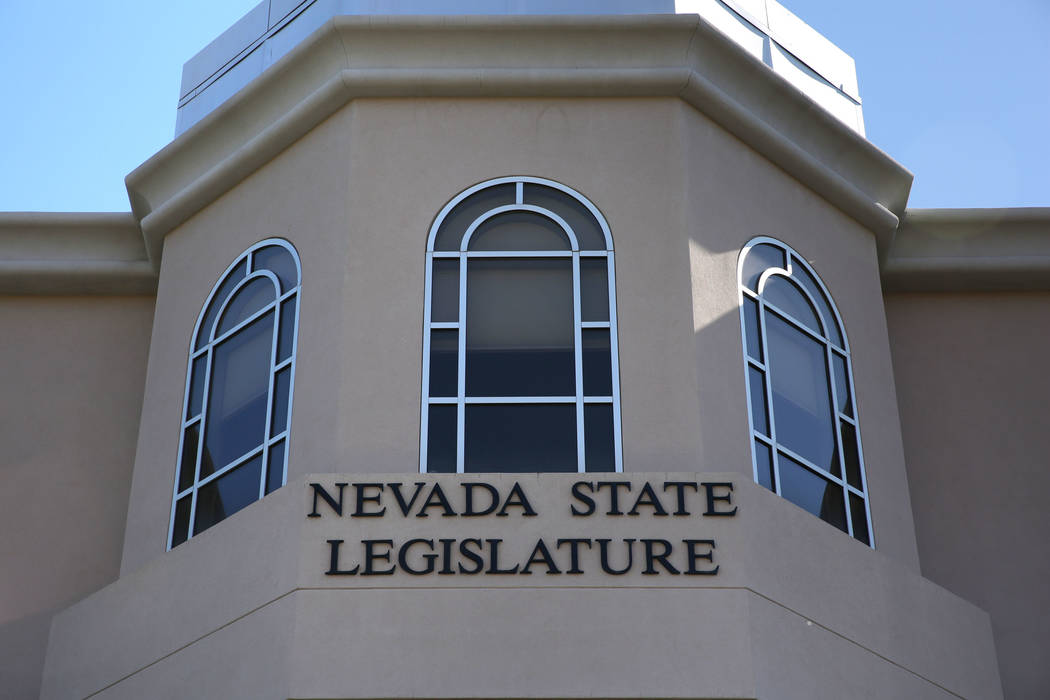There’s too much secrecy as it is
Nevada state Sen. Julia Ratti, D-Sparks, says her intent isn’t to close down information about government employee salaries.
But her Senate Bill 224 is written in a way that may do exactly that.
Ratti’s bill aims to make the names of retired public employees confidential, while still releasing a person’s last public employer, number of years of service, retirement date, pension amount and disability status. Employee names would be replaced with an identification number.
That’s a bad enough idea: Removing names makes the information much harder to track, abuse much harder to notice and public oversight of government workers much harder to accomplish.
But wait, there’s more.
Section 1 of the bill says this: “All information about a member, retired employee, retired justice or judge, retired legislator … which is contained in a record or file in the possession, control or custody of a public retirement system is confidential.”
And who is a member? Another section of state law answers that question: A member is a person “who is employed by a participating public employer and who is contributing to the (Public Employees Retirement) System.”
That could easily be read to mean that all information about a member — including, for example, a current salary — is confidential for every single worker enrolled in PERS. That encompasses a huge number of state, county and municipal employees.
Again, Ratti says that’s not her intent. But that’s of little import, because judges look to legislative intent only if the law is vague or ambiguous. SB224, by contrast, is perfectly clear.
“Stated intent doesn’t matter when it’s at odds with the clear language of the statute,” says Maggie McLetchie, an attorney who has represented the Review-Journal in public records lawsuits.
But wait, there’s even more.
Section 1 of the bill also says that — except for the few pieces of information above — information is confidential “regardless of the form, location and manner of creation or storage of a record or file containing the information.”
According to McLetchie, that language could extend the cloak of confidentiality to any place that “all information about a member” is contained, even in the files of other agencies. So a member’s salary would be kept confidential by PERS, but because that information is also in the files of, say, Clark County or the city of Las Vegas, it could be considered confidential there, too.
That would make Ratti’s bill the most sweeping assault on the public’s right to know in memory, regardless of her intent.
Some might suggest that’s too radical an interpretation of the bill, but keep in mind that we’re dealing with lawyers for PERS, who have fought repeated battles to restrict access to basic information about public retirees. To be sure, Ratti’s bill seems tailor-made to get around a state Supreme Court ruling that found PERS files to be confidential but held that information derived from those files and placed in a separate report must be available to the public.
Shall we trust that those same lawyers would not use the plain language of this bill to argue for the total confidentiality of virtually all public employee information? Or should we conclude that the system would use any and all opportunity to keep the public’s prying eyes out of its files?
The debate over Ratti’s bill marinates in a thick broth of irony, too. A legislator paid with taxpayer money asked taxpayer-paid lawyers to draft a bill that may keep taxpayers from knowing any information about people who supposedly work for the taxpayers on public business. And if those uppity taxpayers sue to get what should obviously be public information, they must overcome a taxpayer-financed legal defense and — even if they win — their private lawyers get their fees paid by the taxpayers.
What’s not to love?
If Ratti’s bill can’t be amended to ensure the public has oversight over supposedly public servants, and has access to names and basic information about public retirees, then it must be killed in the Legislature or vetoed by the governor. The Public Records Law contains too much secrecy as it is.
Contact Steve Sebelius at SSebelius@reviewjournal.com or 702-383-0253. Follow @SteveSebelius on Twitter.























